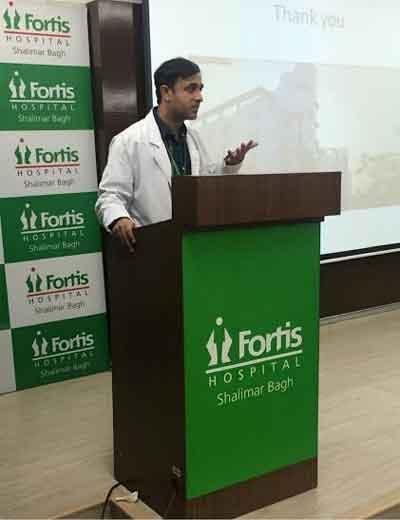- Home
- Medical news & Guidelines
- Anesthesiology
- Cardiology and CTVS
- Critical Care
- Dentistry
- Dermatology
- Diabetes and Endocrinology
- ENT
- Gastroenterology
- Medicine
- Nephrology
- Neurology
- Obstretics-Gynaecology
- Oncology
- Ophthalmology
- Orthopaedics
- Pediatrics-Neonatology
- Psychiatry
- Pulmonology
- Radiology
- Surgery
- Urology
- Laboratory Medicine
- Diet
- Nursing
- Paramedical
- Physiotherapy
- Health news
- Fact Check
- Bone Health Fact Check
- Brain Health Fact Check
- Cancer Related Fact Check
- Child Care Fact Check
- Dental and oral health fact check
- Diabetes and metabolic health fact check
- Diet and Nutrition Fact Check
- Eye and ENT Care Fact Check
- Fitness fact check
- Gut health fact check
- Heart health fact check
- Kidney health fact check
- Medical education fact check
- Men's health fact check
- Respiratory fact check
- Skin and hair care fact check
- Vaccine and Immunization fact check
- Women's health fact check
- AYUSH
- State News
- Andaman and Nicobar Islands
- Andhra Pradesh
- Arunachal Pradesh
- Assam
- Bihar
- Chandigarh
- Chattisgarh
- Dadra and Nagar Haveli
- Daman and Diu
- Delhi
- Goa
- Gujarat
- Haryana
- Himachal Pradesh
- Jammu & Kashmir
- Jharkhand
- Karnataka
- Kerala
- Ladakh
- Lakshadweep
- Madhya Pradesh
- Maharashtra
- Manipur
- Meghalaya
- Mizoram
- Nagaland
- Odisha
- Puducherry
- Punjab
- Rajasthan
- Sikkim
- Tamil Nadu
- Telangana
- Tripura
- Uttar Pradesh
- Uttrakhand
- West Bengal
- Medical Education
- Industry
New Delhi: Infant with abnormal food pipe cured at Fortis Shalimar Bagh

New Delhi: Fortis Hospital, Shalimar Bagh conducted a successful corrective surgery for oesophageal atresia in a nine month old female infant. The surgical procedure followed was a total laparoscopic approach. The surgical team was headed by Dr Amit Javed, Consultant and Head, G.I Surgery, Fortis Hospital, Shalimar Bagh and Dr Anju Gambhir, Sr. Consultant, Department of Pediatric Surgery, Fortis Hospital Shalimar Bagh.
The infant, baby Simran, (name changed) presented to Dr. Amit Javed and Dr. Anju Gambhirwith a food pipe that ended as a blind pouch. There was a gap which indicated that the oesophagus was incomplete. This condition is called the Oesophageal atresia and is caused by an aberrant embryological development of the oesophagus. In this medical condition the food pipe is completely or partially absent. The upper food pipe ends and does not connect with the lower food pipe and the stomach.This condition is usually detected in a new born with excessive salivation (drooling) that is frequently accompanied with choking, and coughing. When fed the usual way through the mouth, the baby swallows normally but struggles consequently as the feed returns from the nose or the mouth.
The risks in this condition are that the baby can turn cyanotic (blue) as the fluid may go into the trachea or the wind pipe. The surgical treatment for correction of this condition depends on how big the defect is. In the smaller defects the two blind ends of the food pipe are brought together and sutured. For larger gaps, a new food pipe is constructed.
Dr. Anju Gambhir, , Sr. Consultant, Department of Pediatric Surgery said, “Baby was born with the congenital defect of a large gap and this presented multiple challenges to the doctors. The gap had to be reconstructed. The baby had been fed for nine months through a catheter that was inserted into the stomach. The fact that the mother was managing this condition so well is really appreciable.”
Dr Amit Javed’svast experience of conducting open and laparoscopic oesophageal surgeries helped in step wise planning and execution of this 6 hour surgery.
Dr Amit Javed, Consultant and Head, G.I Surgery, said “The surgical procedure is traditionally conducted through an open technique that leaves significant scars on the abdomen for a lifetime. As laparoscopic surgeries in infants is rare, the equipment used in such surgeries is also not routinely manufactured to suit the small size of the patient. Minimally invasive surgery in infants with this condition is thereby performed only in very limited centers across the world.”
The two organs that could be utilized for this reconstruction were the stomach and the large intestine. The tubes serving as a food pipe would be reconstructed out of these. The surgical procedure is traditionally conducted through an open technique which leaves significant scars on the abdomen for a lifetime. As laparoscopic surgeries in infants is rare, the equipment used in these surgeries are also not manufactured to suit the small size of the patient.
The infant’s mother tearfully said, “She is our first child and when we were faced with the challenge that was beyond our comprehension we were naturally demotivated. However, with Dr. Javed and Dr. Gambhir our hopes, happiness and new lease of life for our baby have taken a flight. It is a relief to see normalcy returned to our child and we are very grateful to the team at Fortis Hospital Shalimar Bagh.”


